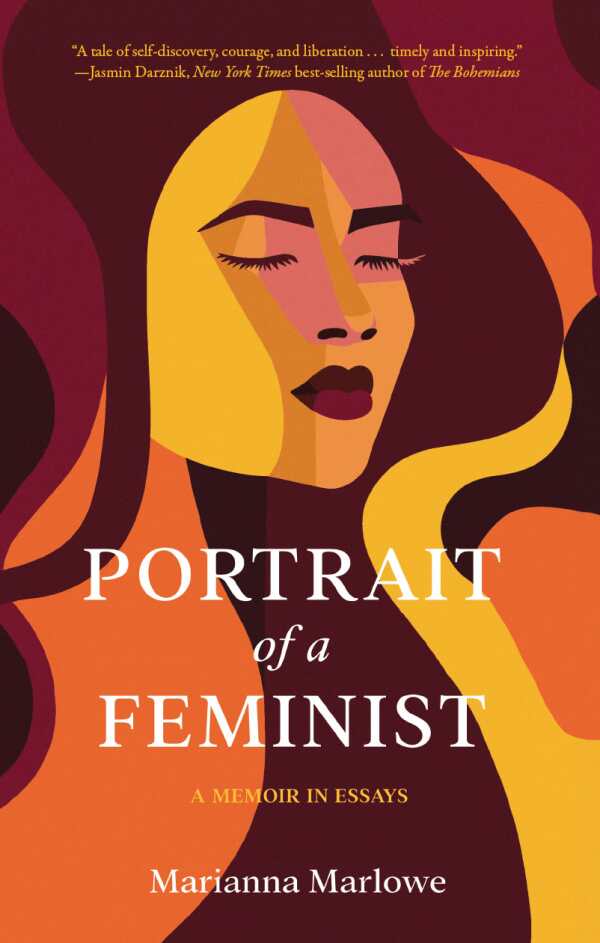Portrait of a Feminist
A Memoir in Essays
Excavating vulnerable anecdotes from the past and connecting them to larger social issues, Portrait of a Feminist is an inspiring memoir.
Marianna Marlowe’s Portrait of a Feminist is a passionate, unapologetic memoir told through essays about the role of feminism in her life and how it shaped her as a daughter, mother, friend, and professional.
Each of the memoir’s four parts covers a period in Marlowe’s life, though the essays do not appear in strict chronological order. Nature metaphors for stages of growth direct the book instead, with sections labeled “Seeds Planted,” “The Growing Years,” “Maturation,” and “Harvesting.” Throughout, Marlowe investigates how her ideals guided her through her career, relationships, and motherhood.
Marlowe excels at excavating vulnerable anecdotes from her past and connecting them to larger social issues, writing with candor and tact about sensitive subjects like the sexualization of girls, domestic abuse, and the rights of women in patriarchal religions. Not all of the essays are so monumental in scope: Even passing encounters prove to be compelling fodder for these ruminations, as when a chance meeting with a Spanish-speaking visitor subverts Marlowe’s usual fear around men who are strangers and she realizes that her status as a local means that, for once, she is the one in a position of power.
Among the book’s observations are those of a cousin who feels that her only path toward a desirable life is to marry an older, wealthier man. Critiques of such beliefs pair with instances of self-interrogation when Marlowe fails to live up to her own values, as with a poignant recollection of her regret over judging a young mother for breastfeeding because of the stigma her own mother placed on women’s bodies. Some unchallenged gender stereotypes nonetheless persist—blind spots that are at odds with the book’s activist messaging. For example, an account of a geriatric aunt’s decision not to get cosmetic surgery suggests that this was a suboptimal choice; elsewhere, regressive assumptions are made about strangers in the airport.
Still, Marlowe’s narration is clear-eyed and assertive, packed with raw, intimate details and blunt opinions. Figurative language, such as when Marlowe compares her girlhood self to a sponge cleaning up the mess leaking from her parents, proves impactful, and Spanish dialogue abounds, often untranslated, conveying pride in Marlowe’s Peruvian culture and echoing her feminist refusal to contort herself to please others.
However, the book’s ideological bent is sometimes heavy-handed. Some repetition comes in—for example, the book starts and ends with two separate stories about young women who are reluctant to identify as feminists, with the second instance seeming redundant. Nonetheless, the book’s overarching statements about the impact of the patriarchy and women’s empowerment are clear and empathetic.
Portrait of a Feminist is an outspoken memoir that introduces feminism through a personalized lens.
Reviewed by
Jenna Lefkowitz
Disclosure: This article is not an endorsement, but a review. The publisher of this book provided free copies of the book and paid a small fee to have their book reviewed by a professional reviewer. Foreword Reviews and Clarion Reviews make no guarantee that the publisher will receive a positive review. Foreword Magazine, Inc. is disclosing this in accordance with the Federal Trade Commission’s 16 CFR, Part 255.

